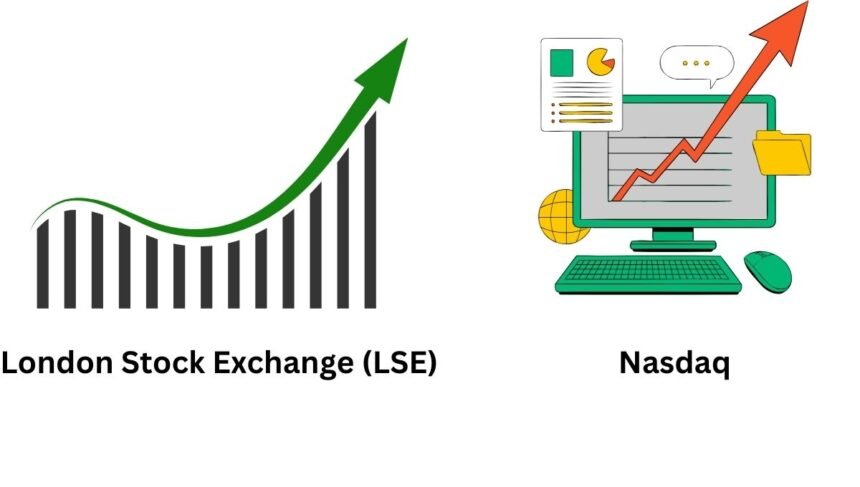An executive at Nasdaq predicted that the trend of tech companies based in the United Kingdom choosing to list their shares on the Nasdaq rather than the London Stock Exchange (LSE) will persist.
The continued departure of fast-growing UK companies endangers London’s position as a leading international financial center.
British IT businesses looking to list in the US are contacting her exchange in droves, according to Karen Snow, Nasdaq’s Global Head of Listings.
Despite Snow’s best efforts, Arm Holdings, a Cambridge-based semiconductor designer, was listed in London by Nasdaq in September, a deal for $4.87 billion.
The Arm IPO’s performance demonstrates Nasdaq’s allure. In contrast to the pitiful $972 million raised by the LSE so far in 2023, Nasdaq has amassed nearly $13 billion through initial public offerings.
For the first time since records started in 1995, the LSE is expected to fail to raise $1 billion in IPO revenues in 2023.
Draining the Lifeblood of the City
The City of London’s strong initial public offering pipeline creates much-needed tax income and sustains thousands of well-paying jobs in the financial sector. Big economic consequences could ensue if the tendency quickens its pace.
We’re actively engaging with companies regarding potential US listings,” Snow stated. “We ensure that we reach the appropriate CEOs and receive a high volume of inbound calls from the UK.”
According to Snow, a number of UK software businesses are already in discussions with Nasdaq about a possible US listing.
In an effort to make London more competitive with continental rivals Paris and Frankfurt, the government has lately enacted financial reforms to restructure rules. But lawmakers panned the adjustments, saying they were boring.
Evaporating Confidence
Other large UK plcs are also escaping the London Stock Exchange (LSE). TUI Group is considering moving its listing from London Stock Exchange to Frankfurt, the largest travel company in Europe.
Behalf of PaddyPower and Betfair, Flutter Entertainment will maintain a basic listing in London and move its main listing to New York this month. Flutter may eventually leave London entirely, according to critics.
In preference for US exchanges, CRH, a UK building supplies corporation, and Ferguson plc, a plumbing equipment provider, have previously delisted from LSE.
Although London is still a hub for innovation, senior UK investment executive Helena Morrissey claims that “it feels less confident and energetic.” She argues that the continued belief around the world that US exchanges provide better valuations is adding to the anxiety.
Reclaiming London’s Financial Throne
Morrissey thinks that restoring trust and confidence at home is the first step in restoring London’s financial prominence. In her view, local asset managers should stop just praising UK plc and start investing more heavily in UK stocks.
The London Stock Exchange (LSE) desperately needs a daring strategy to entice digital unicorns back, while the Nasdaq and New York Stock Exchange are aggressively courting Shein, a Chinese fashion behemoth.
As a thriving cosmopolitan hub, the City of London flourished for many years. To reawaken this vitality, the UK’s investors and businesses must be reassured that London can foster long-term success.
Perhaps the LSE can reverse its fortunes with some well-placed regulatory reforms, more capital from domestic fund managers, and some astute marketing of London’s distinctive advantages.










